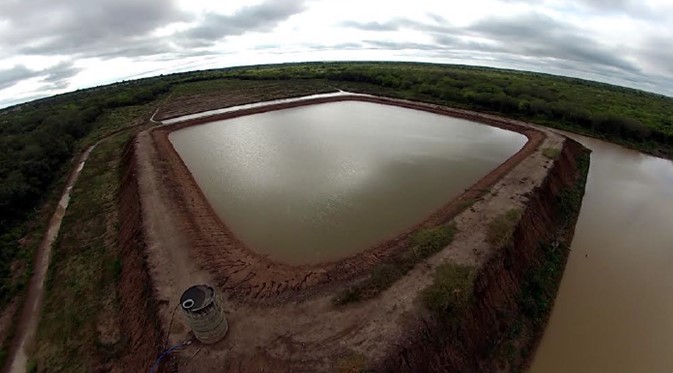International experts will share large-scale solutions such as watershed management and payment for environmental services, as well as agroecological, technological and ancestral alternatives for peasant family farming.

Santiago, 28 April 2021 (IICA). The supply of water for food production is facing complex challenges due to population growth and urbanization, as well as adverse climatic events. The situation requires countries to adopt public policies and implement innovative alternatives to manage this natural resource.
Within this context, the National Irrigation Commission of Chile (CNR) and the Inter-American Institute for Cooperation on Agriculture (IICA) will be holding an International Seminar entitled “Innovative Water Management Solutions for Agriculture”, which will present successful public policies and innovative alternatives for harvesting and adequately managing water for agricultural purposes.
The event will be held on Thursday, 29 April, at 14:00 hours (Chile time; 12:00 hours Costa Rica time). In attendance will be international specialists who will share successful experiences related to programs and applicable technologies for efficient water use, as well as discuss the new challenges facing agriculture within the current context. The conference will be broadcast via the ZOOM platform and participants must register here.
The experience of Brazil’s “Productor de Aguas” (“Water Producer”) program, which focuses on water production in watersheds and payment for environmental services, will be shared. The country’s “Agua Dulce” (“Fresh Water”) program, which is advancing towards community desalination through the social management of water, will also be discussed.
Participants will learn about the operation of the Hydro-BID Water Resources Management platform from Pedro Coli of the Center for Water Resources of the Inter-American Development Bank in Washington D.C., United States. Diego Ramilo, Director of the Research and Technological Development Center for Family Farming of the National Institute of Agricultural Technology (INTA) of Argentina, will describe the Institute’s efforts to develop public policies to facilitate water access for peasant family farmers in the country.
The Agricultural Research Institute (INIA) – La Cruz of Chile will deliver a presentation on “Water Desalination for Farming Purposes”, while the CNR will describe its key role in managing water for irrigation in the country. IICA, in turn, will share innovative solutions for family farming as part of its presentation entitled “Rainwater Harvesting and Irrigation Using Clay Pots in Agricultural Gardens”.
According to Federico Errázuriz, Executive Secretary of Chile’s CNR, “water is a very important resource, but its availability is not guaranteed. The agriculture sector is generally the main user of fresh water, so we must be sure to utilize it efficiently, from the moment it is collected at its source to when we apply it on crops”.
“Technologies are available for farmers of all sizes and, in this regard, we are sincerely grateful for IICA’s efforts to organize this seminar and provide us with an opportunity to showcase our work”, remarked Errázuriz.
Hernán Chiriboga, IICA Representative in Chile, called for broad participation in the seminar. “We are going to present very interesting alternatives and practical solutions to better manage water and natural resources in Chile and the Americas. We believe that we will succeed in developing a promising agriculture sector filled with opportunities through the adoption of public policies aimed at protecting and sustainably utilizing water, as well as the implementation of practical solutions at all levels, on a large scale or for the efficient use of water for peasant family farming or urban consumption”, he noted.
The seminar will be held on Thursday, 29 April from 14:00 to 16:30 hours (local time in Santiago, Chile). Participants may register at the following link:
https://iica.zoom.us/webinar/register/WN_hziXs_CjQu-t5XfIkUTd7A
The full agenda is available at:
Video in Spanish
More information:
Institutional Communication Division of IICA.
comunicacion.institucional@iica.int











